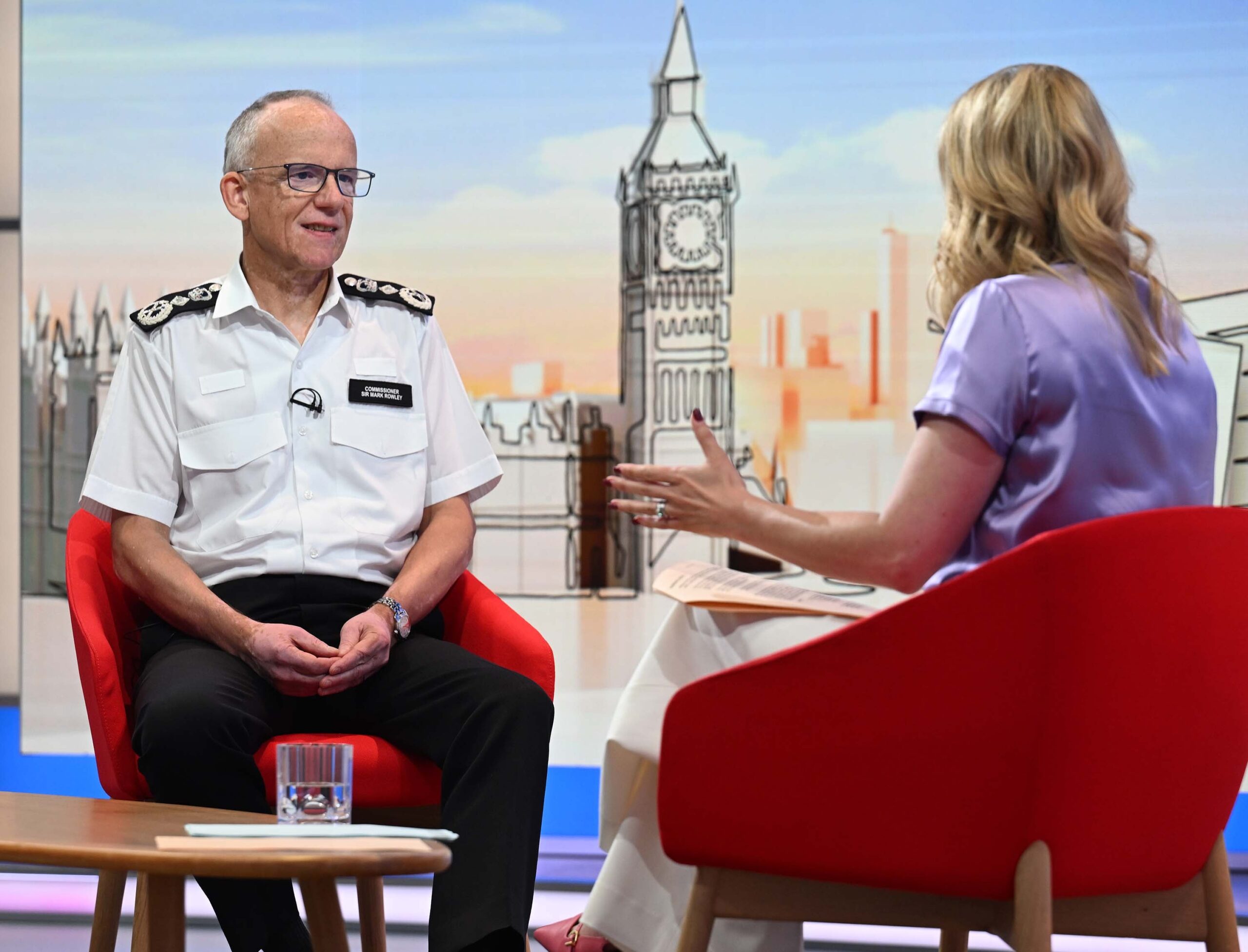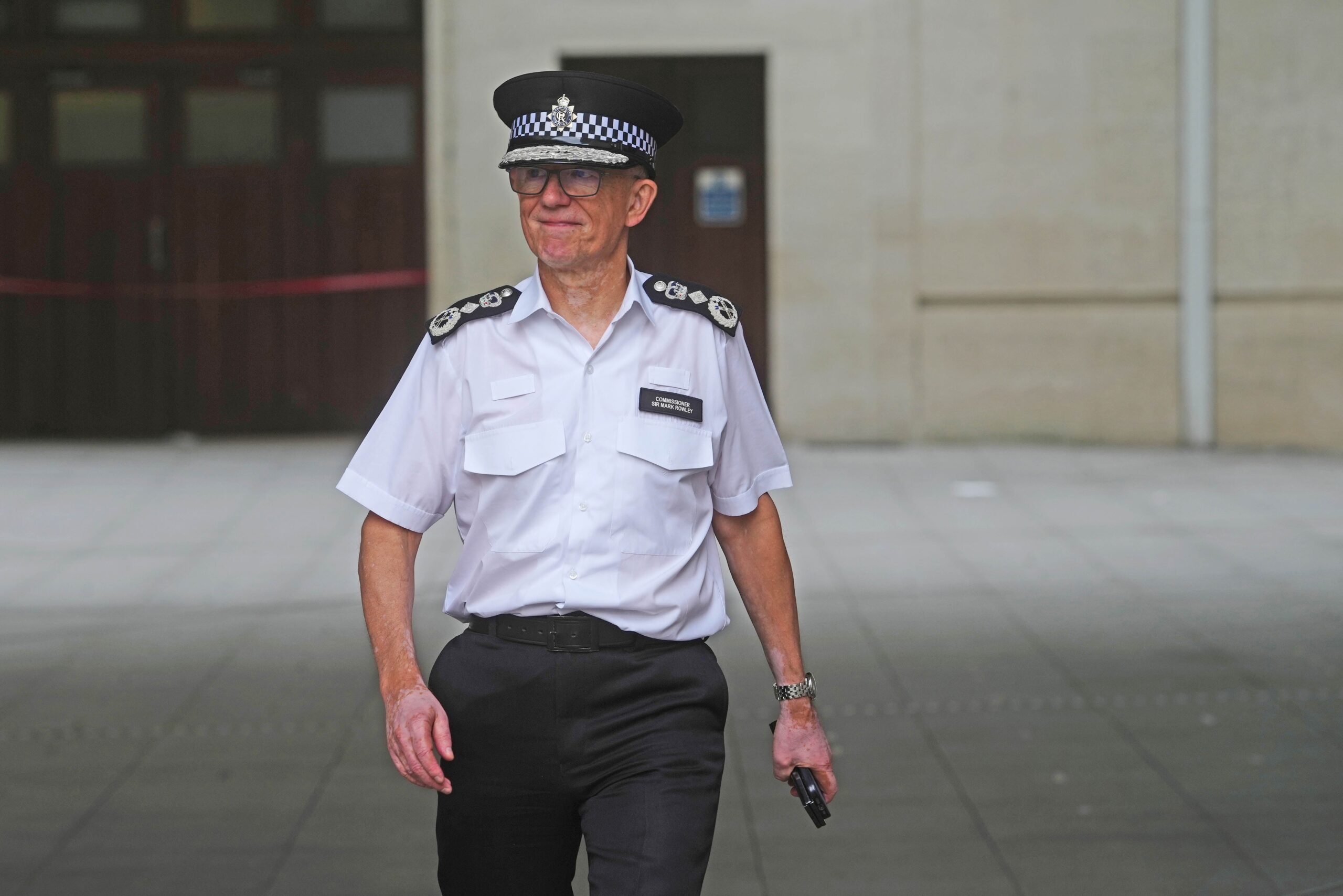Football clubs should contribute more of their own money to the £70 million cost of policing their matches, Met Police chief Sir Mark Rowley has said.
A “polluter pays approach” should be adopted for policing football games, Sir Mark said, as he questioned why organisers of events which require policing do not pay for it.
It comes after Sir Mark expressed disappointment in a Sunday Times article at Chancellor Rachel Reeves’ decision to increase police funding by 2.3 per cent above inflation each year in the recent spending review.
Appearing on the BBC’s Sunday with Laura Kuenssberg, Sir Mark was pushed on how the Met plans on cutting costs. He cited heavy job losses in the Met police force, but also pointed at other opportunities to cut expenditure.

“It also falls elsewhere. Policing of football matches across the country, mainly Premier League, cost policing £70 million it doesn’t get back from football clubs. In London, it’s more than a third of that,” he told the BBC.
There should be a “polluter pays approach”, he said, adding: “If you’re running a profit making event that because of the nature of it, requires security, requires policing to support your security because of the criminality that is going to be experienced, why isn’t the organiser paying for that, rather than local communities who lose their resources to go to football matches?”
Sir Mark has also called for an uphaul of the UK’s current 43-force policing system to help streamline costs. The creation of 12 to 15 bigger police forces would allow authorities to better utilise modern technology and would reduce “expensive” governance and support functions.
“The 43-force model was designed in the 1960s and hasn’t been fit for purpose for at least two decades,” Sir Mark wrote in The Sunday Times. “It hinders the effective confrontation of today’s threats and stops us fully reaping the benefits of technology.
“We need to reduce the number of forces by two-thirds, with the new bigger and fully capable regional forces supported by the best of modern technology and making better use of the limited funding available.”
Asked about the cuts he plans to make to policing, Sir Mark said: “So we’ve cut 1,600 over the last couple of years… 1,700 officers and staff this year, that 3,300 out of an organisation just over 40,000 is a big hit.”
The Met has not got all of the details on the spending settlement but Sir Mark is “nervous about whether we’ll be able to make ends meet with that”, he said, which is why he is calling for police reform.

Put to him that he had warned he would have to de-prioritise some crimes, and asked what the force will not investigate, Sir Mark said: “So I don’t want policing activity to fall off the list, and I know that the mayor and the Home Secretary have pushed hard for the most police funding that we can get.
“We are determined to improve day in and day out experiences of Londoners on the streets. We can only do that if we focus ruthlessly on police work.
“When new recruits join they expect they’re going to spend most of their time protecting the public, enforcing the law, catching criminals. Within a couple of years 80% of them are saying ‘I spend most of my time safeguarding the vulnerable, that’s critical work, but that’s not the core work of policing’.
“So we need help to cut away some of these areas where other pressed public services have effectively pushed work to the police. There are 80,000 missing children from children’s home a year in the country. That is really problematic.”
Sir Mark said the police reforms are “essential”, adding: “If we look at the spending on policing and public safety from the 80s through to the noughties, it was a much higher level than it is today. Over the last decade or more, the proportion that governments are prepared to put to policing is much lower. I don’t see that changing dramatically.
“So we’ve got to make the best use of every pound that governments can give to us.”
